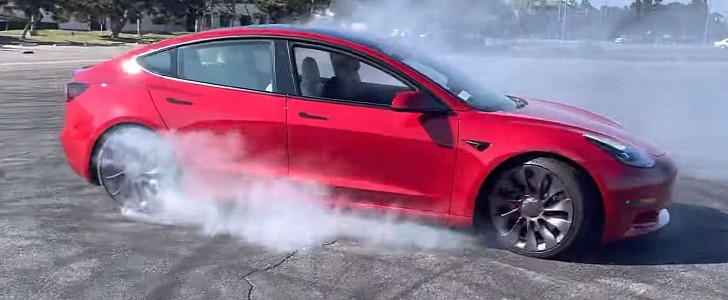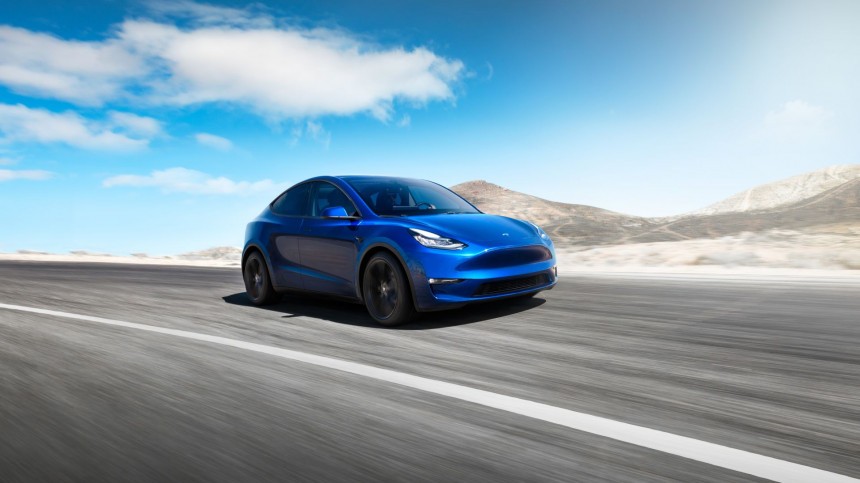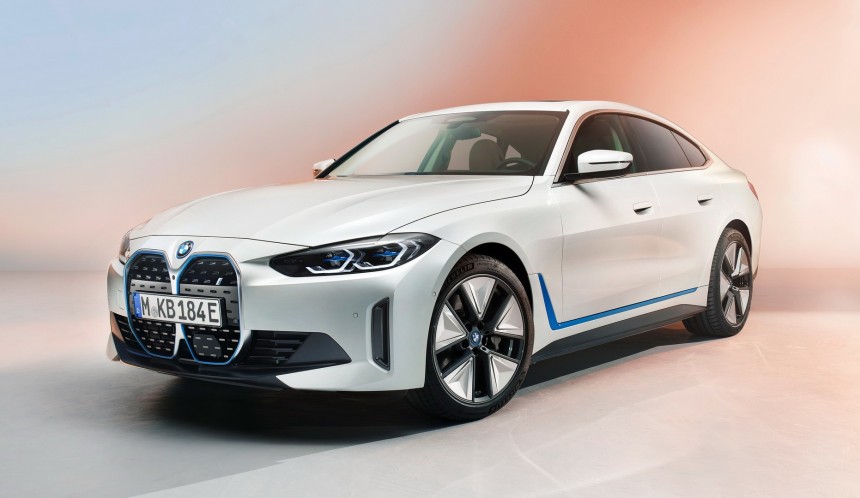Here’s some great news for those interested in all-electric vehicles – the $7,500 tax credit is coming back in an updated form. It will once again be available for automakers like Tesla, Toyota, and General Motors (GM). The bipartisan changes are also bringing some much-needed modifications like tax credits for used EVs. Here’s what you need to know.
Over 11 years ago, Barack Obama was taking the American automotive industry forward by announcing the federal tax credit for EVs. Back then, there weren’t that many cars that qualified. However, it sent a strong signal of what was to come. Companies like Tesla or Nissan rejoiced, while those who had the middle ground solution – the plug-in hybrid (PHEV) manufacturers – smiled as well. It was an electrifying start.
Fast forward a couple of years, and now we’re looking at three big manufacturers whose cars aren’t eligible for the $7,500 tax credit anymore. Tesla, GM, and Toyota are currently in a bad place since competitors like BMW, Porsche, Volkswagen, Mercedes-Benz, Audi, Subaru, Fiat, Ford, Volvo, or Hyundai can still tap those funds that can make or break a sale.
But after witnessing what Chinese automakers are doing and how they’re benefitting from having the Government’s support, Congress understood its time to give those that make cars in the U.S. a much-needed helping hand. That’s why the federal tax credit for EVs isn’t just set to return for everyone, it’s also coming in a refreshed form that’s going to help with the sale of zero-emission vehicles.
For starters, everyone agrees that the limit of 200,000 EVs sold with a tax credit per automaker should be eliminated. It’s not yet clear if the amendments to the proposed bill would raise the limit to 600,000 as previously rumored or if it’s going to be removed entirely. What’s certain is that certain companies that tried to get ahead in the EV game won’t be punished for their strategy any longer.
Tesla, GM, and Toyota would be able to sell their cars with a tax credit incentive once the bill becomes law. But the novelties don’t stop here. There are further complications down the road.
The EV tax credit will also apply when the vehicle is sold, instead of on taxes. That would make life much easier for buyers who will immediately and easily figure out what’s the best offer for their preferences and budget. It would also give dealerships and direct-selling companies a way to bring prices down without hurting their profits. But for that to apply to companies like Tesla, Rivian, or Lucid, the language needs to be changed. Right now the bill says dealers can apply for the credit.
Automakers will have to make sure that most of their components are coming from countries that have a trade agreement with the U.S or are domestically sourced and manufactured. If some criteria aren’t met, then the available EV credit is lowered in value. For example, a Tesla Model 3 would right now qualify for a $3,750 tax credit because the cars are assembled in the U.S., but the batteries are coming from China. Moreover, as stated previously, the language used in the bill should change to allow direct selling companies to apply the advantage.
Next, we must keep in mind that sedans like the Tesla Model 3 or the BMW i4 will qualify for the updated tax credit only if the MSRP is under or equal to $55,000. Currently, the MSRP for the BMW i4 eDrive40 is $55,900. The Bavarians would have to lower their prices.
On the other hand, all-electric SUVs, trucks, and vans will only need a maximum MSRP of $80,000 to qualify. That’s great news for those looking to buy a Ford F-150 Lightning with an extended battery, a Tesla Model Y, or a Rivian R1T.
Buyers must also be aware of the fact that they need a gross income of a maximum of $150,000 as an individual or $300,000 as a couple if they want the EV tax credit. If you earn more, you won’t qualify.
Last but not least, a $4,000 federal tax credit is going to be added for those who buy used all-electric vehicles.
This is a good outcome, even though President Joe Biden wanted the EV tax credit to be $12,500 per vehicle. Let’s see it become law as fast as possible with the right wording added. Those that bought a new Tesla or Cadillac now are already hoping the changes will apply retroactively, even though that’s most likely not going to be the case.
For now, the federal EV tax credit system remains unchanged. If the new proposal becomes law, it will enter effect on January 1st, 2023. This means the new rules won’t apply to vehicles bought this year.
Fast forward a couple of years, and now we’re looking at three big manufacturers whose cars aren’t eligible for the $7,500 tax credit anymore. Tesla, GM, and Toyota are currently in a bad place since competitors like BMW, Porsche, Volkswagen, Mercedes-Benz, Audi, Subaru, Fiat, Ford, Volvo, or Hyundai can still tap those funds that can make or break a sale.
But after witnessing what Chinese automakers are doing and how they’re benefitting from having the Government’s support, Congress understood its time to give those that make cars in the U.S. a much-needed helping hand. That’s why the federal tax credit for EVs isn’t just set to return for everyone, it’s also coming in a refreshed form that’s going to help with the sale of zero-emission vehicles.
The new system
After over a year of negotiations, it looks like politicians from both sides of the aisle reached an important agreement that would boost the U.S. auto industry. Not only that, but it would also make buying an EV more attractive for those that need a new car and don’t want to rely on fossil fuel anymore.Tesla, GM, and Toyota would be able to sell their cars with a tax credit incentive once the bill becomes law. But the novelties don’t stop here. There are further complications down the road.
The EV tax credit will also apply when the vehicle is sold, instead of on taxes. That would make life much easier for buyers who will immediately and easily figure out what’s the best offer for their preferences and budget. It would also give dealerships and direct-selling companies a way to bring prices down without hurting their profits. But for that to apply to companies like Tesla, Rivian, or Lucid, the language needs to be changed. Right now the bill says dealers can apply for the credit.
More rules and regulations!
The bipartisan agreement that would send this law proposal to Joe Biden for final approval might also include certain requirements that look to safeguard American jobs. For example, companies that wish to benefit from this fiscal advantage must make sure the eligible vehicles are manufactured in North America (Canada and Mexico are included) and their batteries aren’t shipped from countries like China. This is how Congress is envisioning a healthy push toward bringing battery making to the U.S. More investments in this sector automatically translate into more jobs.Automakers will have to make sure that most of their components are coming from countries that have a trade agreement with the U.S or are domestically sourced and manufactured. If some criteria aren’t met, then the available EV credit is lowered in value. For example, a Tesla Model 3 would right now qualify for a $3,750 tax credit because the cars are assembled in the U.S., but the batteries are coming from China. Moreover, as stated previously, the language used in the bill should change to allow direct selling companies to apply the advantage.
Next, we must keep in mind that sedans like the Tesla Model 3 or the BMW i4 will qualify for the updated tax credit only if the MSRP is under or equal to $55,000. Currently, the MSRP for the BMW i4 eDrive40 is $55,900. The Bavarians would have to lower their prices.
Buyers must also be aware of the fact that they need a gross income of a maximum of $150,000 as an individual or $300,000 as a couple if they want the EV tax credit. If you earn more, you won’t qualify.
Last but not least, a $4,000 federal tax credit is going to be added for those who buy used all-electric vehicles.
This is a good outcome, even though President Joe Biden wanted the EV tax credit to be $12,500 per vehicle. Let’s see it become law as fast as possible with the right wording added. Those that bought a new Tesla or Cadillac now are already hoping the changes will apply retroactively, even though that’s most likely not going to be the case.
For now, the federal EV tax credit system remains unchanged. If the new proposal becomes law, it will enter effect on January 1st, 2023. This means the new rules won’t apply to vehicles bought this year.








